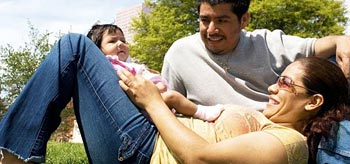
 |
|
| Home » Livability Toolkit » Outreach to Latino Community » Key Findings from the Latino Public Participation Report | |

Unauthorized Latinos are limited by fear of deportation and this fear creates a sense of feeling unwelcome for members of the Latino community.
Because Senate Bill 1080 requires proof of citizenship or legal status to obtain an Oregon driver’s license. Participants who were interviewed identified Senate Bill 1080, which requires proof of citizenship or legal status to obtain an Oregon driver’s as a serious transportation barrier because unauthorized immigrants no longer have access to consistent, legal, and insured transportation to work.
The U.S. Census illustrates that between 2006 and 2010 the Latino community’s housing situation in Lane County was quite dire. It estimates that during this five-year period, 54 percent of Latinos were cost-burdened.
Specific features of the Latino population that affect their access to health care include degree of acculturation, language, and immigration status. More than one-fourth of Latinos in Lane County are foreign-born, and many are recent immigrants who retain their cultural beliefs and behaviors concerning health and health care.
The linguistic diversity that exists within the Latino community is often overlooked as an issue that impacts language development or translation services. A share of Mexican and Guatemalan Lane County residents are not even descendants of Spanish speakers. Their native tongues include Nahuatl, Zapotec, Mixteco Alto, Mixteco Bajo, Trique, or another of fourteen indigenous Mesoamerican languages.
Latino leaders and the low-income marginal members revealed that Latinos often experience discrimination from white residents when they visit parks or other public spaces, as well as from law enforcement officers. Interviewees also reported that being denied a service or being given substandard service were common forms of discrimination.
Several workshop participants mentioned their culture values farming because it promotes a healthy and active lifestyle. But that in Lane County, they lack access to gardening space, which makes it difficult for them to grow their own fruits and vegetables. Public space also serves an important cultural role in the Latino community. Plazas serve as key gathering spaces.